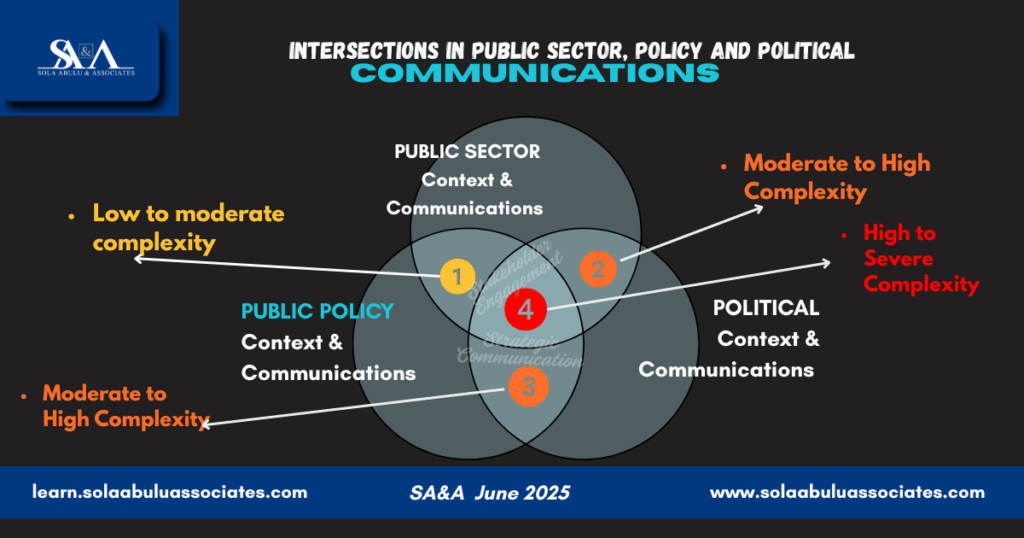Guidance for Political Communicators

Political communicators are the most vulnerable to the worst practises in the profession because of the contemporary nature of politics that makes constructive discourse almost impossible. The following guidelines are useful to keep in mind while navigating the difficult terrain of political communications.
- Resist the urge to use public service administrative services as a tool to score political points at the expense of the people. This is likely to sow a very bad seed for the future. While it may work in the short term but in the long term may cause significant back-lash for future political candidates, the party you represent and the political agenda that you are paid to support.
- Try not to run your campaign or communication strategy by propaganda and misinformation.It will backfire and your principal will pay dearly for it now or in the future. While it may seem like you are getting away with it now, the advances being made in technology and the overall restiveness in unrepresented segments of society indicates that it will be increasingly harder to get away with running a political communications strategy or campaign based on falsehoods and lies.
- Manage reputation and not headlines. Consider helping your candidate or principal to look good by advising them to deliver tangible actions that can be communicated about in a credible manner.
REPUTATION
=
Performance (what the office achieves and delivers)
+
Behaviour (how they manage their interactions and relationships with citizens)
+
Communications (how they communicate with the people)
Develop a communications strategy that focuses on amplifying performance gains and deliverables – showcases the heart of the leader through actions of empathy and consideration for the people and then communicate about it. One major thing that many political leaders lack is EMPATHY and they cannot even fake it!! This alone makes them really unlikeable in the real sense of things.
Also consider the KNOW, FEEL and DO in your messaging. Citizens may not always remember what the political leaders DID or the specific actions they took. But the citizens will never forget how public office holders made them FEEL. Did they FEEL heard, seen, listened to, respected, valued, considered?
Political leaders and communicators need to understand that feelings are important. Political communications is about managing public narrative and sentiment and also amplifying performance with credible and verifiable proof-points to build reputation and trust in the government of the day. Communications does not need to be confrontational, aggressive and defensive. It should be welcoming, persuasive, inspirational, trustworthy, credible, transparent, authentic. All of this would translate into goodwill for the leader. Building your political communications strategy on the back of a broken and corrupt political system that focuses on a powerful minority and overlooks the interests of the “powerless” majority is an unsustainable practise. It is just a matter of time before something gives way.
Our live online class on Public sector, policy and political communications comes up on June 26, 2025 from 9AM – 4PM WAT. Register here to join the class : https://www.solaabuluassociates.com/signup-interest/ (10% discount ongoing until June 14, 2025)
Sola Abulu & Associates (SA&A) is a strategy and communications training and consulting firm focused on enabling businesses, brands and institutions to achieve their desired objectives through strategic communication, organizational effectiveness and reputation risk management. Contact us on consulting@
solaabuluassociates.com for consulting enquiries. Contact us on training@ solaabuluassociates.com for training enquiries. Visit our website www. solaabuluassociates.com Subscribe to our YouTube channel Enrol for our play-on-demand course on public sector, policy and political communications.
